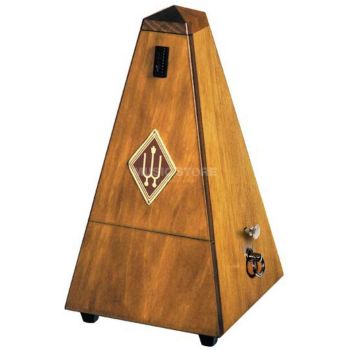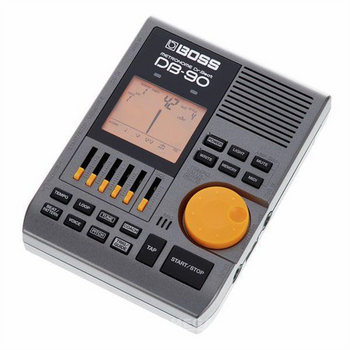- Elegant design
- Highly accurate
- Durable construction
- No need for batteries
- Highly customizable
- Voice counting
- Durable construction
- MIDI connectivity
- Heavier than plastic models
- Higher price point
- Expensive
- Complex interface
Wittner 813M vs Boss DB-90
When it comes to precision timing and rhythm, musicians rely on high-quality metronomes to help them stay on beat. Two popular options among music professionals are the Wittner 813M and the Boss DB-90. In this comparison, we'll delve into the features, functionality, and overall performance of these two metronomes to help you decide which one is best suited for your needs.
Wittner 813M
The Wittner 813M is a mechanical metronome that has been a staple in the music industry for decades. Known for its accuracy and durability, this metronome features a traditional wind-up mechanism that provides a reliable and consistent tempo. The 813M has a wide range of tempo settings, from 40 to 208 beats per minute (BPM), making it suitable for various musical genres and applications.
One of the standout features of the Wittner 813M is its unique "pendulum" design, which allows for a smooth and precise movement. This mechanism ensures that the metronome's tempo remains consistent, even at slower or faster speeds. Additionally, the 813M has a clear and audible tick-tock sound, making it easy to follow along with.
Boss DB-90
The Boss DB-90, on the other hand, is a digital metronome that offers a wide range of advanced features and functionality. This compact device boasts an impressive tempo range of 30 to 250 BPM, as well as various time signatures and rhythm patterns. The DB-90 also includes a built-in tuner, allowing musicians to quickly check their pitch accuracy.
One of the key advantages of the Boss DB-90 is its versatility. This metronome can be used in a variety of settings, from practice sessions to live performances. It also features a large LCD display, making it easy to read and navigate through the various menu options. Additionally, the DB-90 has a headphone jack, allowing musicians to practice privately without disturbing others.
Comparison
When comparing the Wittner 813M and the Boss DB-90, it's clear that both metronomes have their own unique strengths and weaknesses. The Wittner 813M excels in its mechanical accuracy and traditional design, making it a great choice for those who prefer a more analog approach to timing. On the other hand, the Boss DB-90 offers a wide range of advanced features and functionality, making it an excellent option for musicians who require more versatility and flexibility.
In terms of sound quality, both metronomes deliver clear and audible ticks, but the Wittner 813M has a slightly warmer and more natural tone. The Boss DB-90, on the other hand, produces a crisp and precise digital sound that is well-suited for modern music applications.
Ultimately, the choice between the Wittner 813M and the Boss DB-90 will depend on your personal preferences and needs as a musician. If you're looking for a traditional, mechanical metronome with a rich history and accurate timing, the Wittner 813M may be the better choice. However, if you require a more modern and feature-rich digital metronome with advanced functionality, the Boss DB-90 is an excellent option.
In conclusion, both the Wittner 813M and the Boss DB-90 are high-quality metronomes that can help musicians improve their timing and rhythm. By understanding the unique features and strengths of each device, you can make an informed decision and choose the metronome that best suits your needs and preferences. Whether you're a professional musician or a beginner, investing in a good metronome is essential for developing strong musical skills, and both of these options are well worth considering.


















